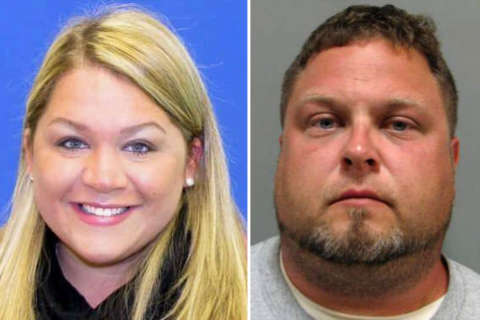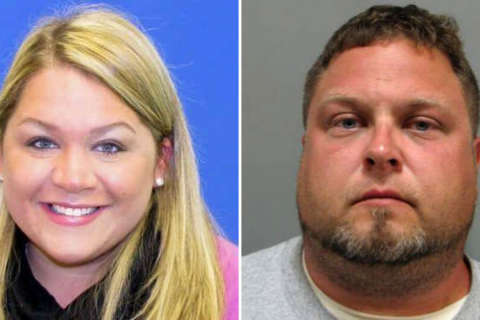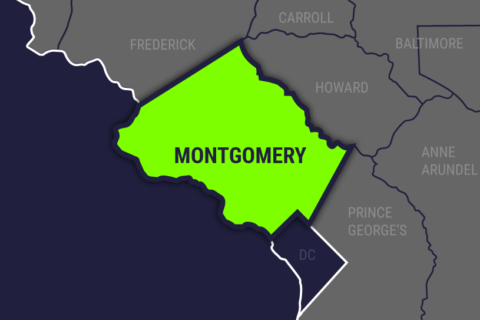WASHINGTON — When Montgomery County prosecutors announced in court Friday they wanted to play a recorded phone call between murder suspect Tyler Tessier and his father, it came as a surprise to public defender Allen Wolf.
“I’m hearing things for the first time,” Wolf told Circuit Court Judge Michael Mason.
Tessier is charged with the September 2017 murder of his pregnant girlfriend, Howard County teacher Laura Wallen.
Prosecutors Donna Fenton and Mary Herdman sought to play the recorded call to demonstrate Tessier and his attorney’s strategy was to deliberately delay his trial.
In the call, Tessier said a trial delay would be in his best interest.
In explaining his rationale, Tessier mentioned the Las Vegas shooting tragedy.
“People forget; things happen,” Tessier said in the phone conversation, which was recorded in October 2017. “When something more important happens, it puts me out of the public eye.”
Upon learning of the recording, Wolf sought to waive Tessier’s presence in the pretrial hearing, to prevent the drama of having his client’s reaction to the “gotcha” moment on display in open court.
“The state wants to do a little bit of a show, and they want him here,” Wolf said.
Judge Mason granted Wolf’s motion to allow Tessier to remain in a holding cell, while prosecutors were granted permission to play the call for Mason’s benefit and to the overflow crowd in the courtroom.
Despite the prosecutorial tactic’s surprising and dramatic nature, recorded phone calls are, in most cases, legal.
“We will refrain from commenting at this time,” said Ramon Korionoff, spokesman for Montgomery County State’s Attorney John McCarthy.
“An inmate in jail has absolutely no expectation of privacy,” said Doug Gansler, former Maryland Attorney General and Montgomery County State’s Attorney. “That’s why you always hear about a jail cell being tossed, or conversations being overheard and used in court, against a defendant.”
Gansler, now an attorney with Buckley Sandler, is not involved in the Tessier case.
“When a defendant goes to make a call at the jail, there are signs posted above the telephones saying these calls may be recorded,” said Gansler. “When you actually make the call, there’s an oral message that comes on and reminds the inmate that these calls are being recorded and may be used against them.”
Defense attorney David Felsen, with Felsen and Sargent, who is also not involved in the Tessier case, said not all of a defendant’s phone calls can be recorded or monitored.
“If he’s talking to me, it’s protected by attorney-client privilege,” said Felsen. “But if he’s talking to anybody else, it can be recorded.”
Felsen said defense attorneys often warn clients that phone calls from jail can be monitored, and letters can be opened and read by prosecutors.
In one case he defended, Felsen’s client spoke to a family member in a language other than English, and prosecutors “hired a translator to figure out what was being said.”
While the recording was used in a pretrial hearing, Gansler said a hearing would likely be held to determine whether it might be admissible in Tessier’s trial, which will begin Sept. 4, 2018.
“A decision as to anything that is said on the phone call can be used at trial would be made down the road,” Gansler said.








